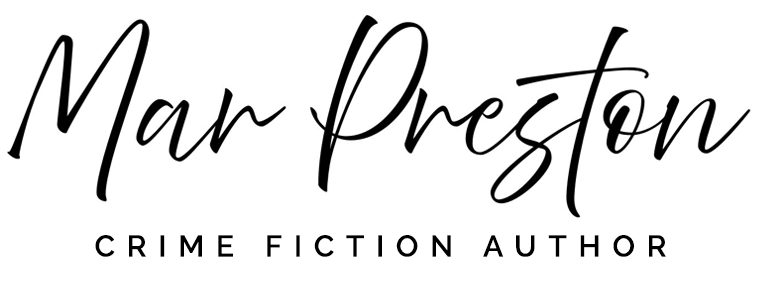I’m marveling at the difference between common speech and dialogue that lays on the printed page as I edit my sixth crime fiction novel.
If you ask anybody a question in daily life they don’t answer, “Yes.” Full stop.
They say, “Yeah, right. Like I said…So…yeah…like I mean, you know.” And they may rattle on about what the clerk at the DMV said and the cellphone plan they chose.
Saying…“Yes.” Full stop..sounds abrupt. And worse, could leave a dreaded gap of silence in a conversation, which we dread. So most of us chatter.
![]() But you can’t do that when you’re writing crime fiction. The author can’t let any character rattle on about the perplexing dying patch of grass on the lawn, or a new recipe for broccoli cheese casserole. Unless it matters to the plot. Or reveals something about their character, their motivations, or diabolical agenda. Or something particular about their speech pattern like an accent or a stammer.
But you can’t do that when you’re writing crime fiction. The author can’t let any character rattle on about the perplexing dying patch of grass on the lawn, or a new recipe for broccoli cheese casserole. Unless it matters to the plot. Or reveals something about their character, their motivations, or diabolical agenda. Or something particular about their speech pattern like an accent or a stammer.
The watchword in crime fiction—of the sort I write—gritty, psychological police procedurals is to write tight. No wasted words. Keep the plot moving. Each scene has to advance the action.
I also write for entertainment. Cops have their own salty jargon the way any closed society does. So I’m going to use a colorful phrase I’ve picked up in my research and avoid the leached out, desiccated language of police report prose.
For example, “Back To The Barn” – heading back to the police station. Or: “Cue Ball” – a bad guy, especially a gang member, with a shaved head.
You would hardly have your hero speak the way cops write reports. “I exited my vehicle.” For “I got out of my car.” “I gave chase and pursued…” For “I ran him down”…”Be advised.” For “Listen to me, dammit.”
At this point in the editing process, I’m chasing down wasted words. Words like “just.” I could not believe that I had used “just” 293 times in 307 pages. Editors call almost, probably, nearly “weasel” words. Just say it. If your villain gets shot he doesn’t almost, probably, nearly die. He dies.
I ruthlessly deleted most of the “justs” but noticed as I did so the difference between common speech and written speech. Maybe you’re not as aware as I am of just how often we use this word. It just makes things sound better. It’s an emphasis word, like “very.”
“Just” is also used as a spacer, the way that “like I said” trips off the tongue. It’s a way of holding your place in the conversation. “Hey, I’m still talking.”
Try not saying just or very. It’s hard.
We all compete in the conversation sweepstakes. Nobody wants to be thought the dullard on the sidelines with nothing to say. We all want to be the lively, sparkling wit. Few of us are. Hardly anybody really, really listens.
Phrases like this give us a moment to think, to reel in our next point. “You know what I’m sayin?” is another popular one that makes me grit my teeth. Yes, I’m following you. You think I’m stupid?
But as I go through my manuscript, probably for the 53rd time, I’m writing tight and it does make a difference. Okay, there’s less words, but it moves faster. It makes characters appear more decisive, my cop more proactive. He’s detecting. Clues don’t fall on his head like an anvil. He makes things happen.
Surprising what a few words can do. Then think of what poets can do and that economy of line.
__________________________________________________________
By the way, this manuscript is the follow up to Payback and is set in the peaceful mountain town in Central California where I live.


